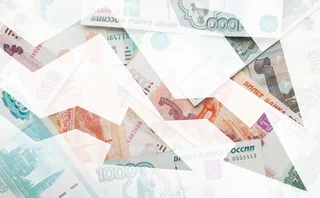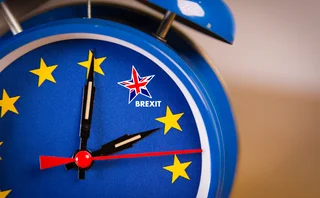
All eyes on the Middle East
Beirut comes under the spotlight of the global foreign exchange industry this week, with forex industry body ACI’s yearly get-together in the Lebanese capital from September 10--14. And it comes at no better time to publicise the development of foreign exchange in the Middle East, which is at a crucial juncture.
Growing sophistication of clients in the region has led banks to develop increasingly sophisticated products, while global macroeconomic developments, such as the low interest rate environment in the US, have prompted local investors to look at fresh forms of investment.
Islamic banking -- previously concerned chiefly with developing sharia (Islamic law) compliant solutions in the money markets industry -- is now being applied to currency hedging. The repatriation of Islamic funds to the region, due to the economic environment in the US, and as a result of the US Patriot Act, has brought unexpected liquidity to local markets.
"The whole region is growing in importance," says Daniel Hanna, Standard Chartered’s international economist for the Middle East, who recently transferred from London to Dubai to cater for the bank’s growing dealing floor there. "Capital markets and currency markets are becoming much more sophisticated."
A few years ago, says Hanna, customers in the Middle East were unlikely to have even heard of an interest rate swap (IRS). Now IRSs and other complex instruments, such as currency options, are increasingly becoming part of the FX client’s suite of financial tools.
Partly, says Hanna, this is due to globalisation, which is changing the face of foreign exchange elsewhere in emerging markets. As clients become more exposed to ‘best practices’ in the US, Europe and Asia, the same practices start to be applied locally. At the same time, the sell side is looking to increase the proportion of revenues derived from emerging markets in an effort to diversify revenue streams, and this has led to increased investment in the region, says Hanna.
Saleh Romeih, head of client coverage for the Middle East, North Africa and South Africa at Deutsche Bank’s global markets division, says that two chief developments are promoting investment in the region: the low interest rate environment in the US and a growing acceptance of the euro as an investible currency in the Middle East. "The two combined are prompting some investors to seek alternative means of investment," says Romeih. "There has been less interest in the equity markets in the US, and up to now, a volatile and event-driven credit environment in the US and Europe, so a lot of investors have been looking for an alternative home for their cash."
However, this is where the limit lies to development of the forex market in the Middle East. While clients are becoming more sophisticated, says Paul Raphael, Paris-based chairman of central and eastern Europe, the Middle East and Africa at Merrill Lynch, activity is limited to the Swiss franc, euro, yen, dollar and sterling. "It relates very little to the local currencies.
"We are seeing local investors in the Middle East playing more aggressively in the FX markets. But the same local players are not playing in the domestic markets."
This means the domestic FX market is not being developed in the same way, either because of regulatory regimes or because the local economy is dollarised. Raphael says this is not going to change unless there is major deregulation.
One development that could open up more of the Middle East to further investment is the current concentration of activity in Islamic finance. "Islamic banking is a growing phenomenon and it will be more important as time goes by," says Dr Shujaat Nadeem, Bahrain-based regional director of sales and trading for Citigroup in the Middle East, the Levant, Pakistan and Egypt.
Although development is currently largely limited to "theoretical discussion" rather than actual implementation, banks will have to come up with solutions to provide currency forwards and options in order to develop Islamic banking as a viable business, says Dr Nadeem.
So far, much of the innovation in Islamic finance has been in areas outside of FX -- in money markets for example -- and this is because under sharia law, currency is not considered a permissible underlying asset.
But there are ways around this, and financial institutions are now looking at instruments that simulate currency hedging by embedding a permissible commodity contract in between the exchange of cashflows.
This does not necessarily work out as more expensive than a traditionally hedging device, says Deutsche Bank’s Romeih, although it is potentially more cumbersome because of the added complexity in how the process is documented.
The International Swaps and Derivatives Association is one major global organisation that has recently embarked on a drive to promote Islamic finance. The New York-based industry body set up a Middle Eastern working group in May to examine the legal and regulatory issues affecting the derivatives industry in Islamic jurisdictions, and specifically in Abu Dhabi, Dubai, Bahrain, Saudi Arabia and Qatar.
In particular, says Peter Werner, Isda staff liaison to the Middle Eastern working group in London, the focus is now on working out sharia-compliant wording of documentation on interest rate swaps -- under Sharia law the payment of interest, or riba, is forbidden. There are similar issues to be resolved for other OTC derivatives documented under Isda agreements, such as interest payable in cases of default. One of the difficulties in resolving these issues is that varying interpretations of sharia law apply throughout the region. There are certain countries that are more conservative than others -- Saudi Arabia, for example, is more conservative than the United Arab Emirates, says Werner, and in order to come up with a resolution that is suitable for everyone, Isda must liaise with every sharia board of every counterparty of Isda’s members.
Unsurprisingly, this is unlikely to be a quick process. However, demand for a consensus on Islamically acceptable Isda standards is high, and would lead to increased trade. "We are looking at this issue because our members expressed interest in this region," says Werner. "Our members believe there is a lot of potential growth," he says, citing potential trading with counterparties "from all kinds of economic sectors" -- corporates as well as banks, if suitable standards can be drawn up.
And of course the issue has far-reaching implications. "The Islamic law issues affect not only the Middle East region, but the Far East as well. These issues have repercussions in other jurisdictions," says Werner.
In the past 18 months, domestic markets in the Middle East have been given an added boost by repatriated funds. The low interest rate environment in the US and fears that the US Patriot Act could be used to freeze the accounts of Islamic-held money helped prompt the return of billions of dollars to the region. Estimates vary as to how much money has flowed from the US to the Middle East, but Dr Nadeem reckons the figure to be about $10 billion--20 billion -- a small proportion of the $900 billion of Middle Eastern money still sitting in the US.
Still, there is a noticeable impact on regional markets, say officials. Domestic stock markets, for example, are hitting record highs, says Hanna. And "there’s been a significant pick-up in the regional investor community. Almost any interesting investment opportunity is oversubscribed at the moment because the market is awash with liquidity."
Dr Nadeem says: "It’s given financing, focusing Arab money on projects in the region." Local investor opportunities include funds set up to help investors participate in the reconstruction of Iraq, following the war in the country this year.
However, in terms of local currency markets, this money is unlikely to make an "earth-shaking impact", cautions Raphael. "Islamic funds are channelling money into intra-regional projects. But the region does not have enough investment opportunities -- the bond and equity markets are not deep enough. There remains a lack of liquidity in local currency markets -- especially in domestic currencies that are relatively illiquid."
Meanwhile, another unexpected boost to FX trading in the region may come in the form of liquidity outsourcing -- a development that is the current focus of most major banks’ e-commerce projects. To command more volume, global banks have started to give their proprietary e-commerce platforms to regional banks, which then offer them under their own brand names to their own clients. Called ‘white-labelling’, this means local banks in areas such as the Middle East get an immediate FX trading platform, without the start-up cost. Local clients get access to a global bank’s liquidity via a local provider.
The model is ideal for banks in less-developed markets, explains Kim Fournais, co-chief executive officer at Saxo Bank in Copenhagen, a specialist in white-label partnerships, with four partners in the Middle East. "The technical development and infrastructure is not as high in the Middle East [as major centres]. Technology is so important and if they haven’t already spent the money it is easier to make the transition than a bank that has just put in a new back-office system two years ago.
"Awareness of white-labelling and partnerships is growing and will continue. We really believe it will change the world."
Only users who have a paid subscription or are part of a corporate subscription are able to print or copy content.
To access these options, along with all other subscription benefits, please contact customer services - www.fx-markets.com/static/contact-us, or view our subscription options here: https://subscriptions.fx-markets.com/subscribe
You are currently unable to print this content. Please contact customer services - www.fx-markets.com/static/contact-us to find out more.
You are currently unable to copy this content. Please contact info@fx-markets.com to find out more.
Copyright Infopro Digital Limited. All rights reserved.
As outlined in our terms and conditions, https://www.infopro-digital.com/terms-and-conditions/subscriptions/ (point 2.4), printing is limited to a single copy.
If you would like to purchase additional rights please email info@fx-markets.com
Copyright Infopro Digital Limited. All rights reserved.
You may share this content using our article tools. As outlined in our terms and conditions, https://www.infopro-digital.com/terms-and-conditions/subscriptions/ (clause 2.4), an Authorised User may only make one copy of the materials for their own personal use. You must also comply with the restrictions in clause 2.5.
If you would like to purchase additional rights please email info@fx-markets.com
More on Derivatives
Ruble turmoil prompts calls to fix NDF contracts
Some market participants want to see offshore fixings as an option in all standard documentation
Russian invasion stirs up ‘perfect storm’ for XVA desks
Declining credit quality of Russian companies and spike in inflation threaten CVA and FVA double-whammy for banks
EU’s IM model validation rules may put Simm in jeopardy
Draft RTS creates validation hurdles and cross-border conflicts, industry warns
IM phases five and six collide as buy side delays readiness
More than 1,000 segregated accounts for uncleared margin may still need to be opened post-deadline
First Ibor versus SOFR cross-currency swaps trades
Westpac and Citi strike BBSW/SOFR trade in landmark moment for Australian market
Crédit Agricole’s head of FX options departs
Andrew Soper leaves French bank to pursue other opportunities
Eurex faces more delays to cross-currency swap clearing
Clearing house eyes June release; dealers voice concerns over liquidity and margining
US agencies move to protect swaps after week of Brexit chaos
Fed gives legacy swaps a margin break to help fend off risk of contractual limbo







